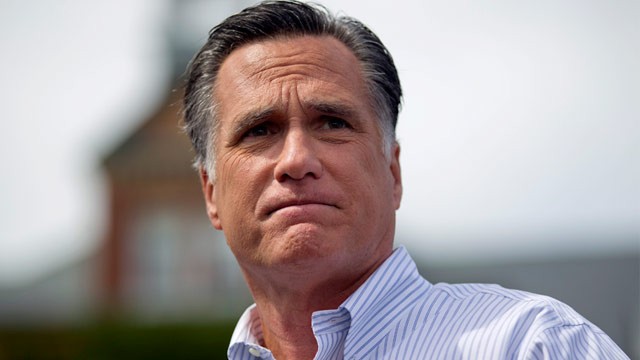In his latest for the New York Times Magazine, Mark Leibovich offers us a peek through the blinds into the world of ex-presidential nominee Mitt Romney — who is, in case you haven’t already seen the bajillion-ish articles about it and don’t know, seriously considering running for president once again. But despite Leibovich’s best efforts to read some gravitas-giving pathos into his typically forced joviality, the Romney we see in the piece still bears the distinctive traits that helped lose him the White House in 2012, and will likely do so again if he runs in 2016.
In truth, there’s very little in the piece that we didn’t know already, with perhaps Romney’s explanation of his infamous 47 percent remark — that it was a maladroit attempt to placate a ranting supporter by aping his language, as many suspected at the time — coming closest to being actual news. That’s partially because Romney isn’t all that complicated of a person; but it’s also a consequence of how he acts throughout the piece, which is more akin to a pseudo-candidate than an éminence grise. His responses often sound canned, and in one instance Romney cites a joke from the movie “Dumb and Dumber” in exactly the same way as he did earlier this year on conservative radio.
The surest sign that Romney remains who you thought he was, however, comes near the piece’s end, when the man called Mitt shares some thoughts about why President Obama keeps messing everything up (emphasis mine):
He spoke dismissively about his visit to the White House shortly after the 2012 election — the cursory meeting in which the former combatants are supposed to play gracious, take pictures together and make noises about issues on which they might work together in the future. “It was intended to check a box,” Romney said of the president’s invitation. He was not offered any follow-up, which was typical, Romney said, according to what he heard from some of his executive friends. “No one gets the impression that what they are saying is being incorporated,” he told me. “I won’t mention who it was, but I met with one of the nation’s top Republican leaders, and he said, ‘You know the strange thing is that the president seems to answer to only two people — Valerie Jarrett and Michelle Obama.’ ”
It’s a wonderfully revealing moment, Romney’s little pout over his victor not taking his and his friends’ advice more fully into account, and I’m not sure it’s a quote Leibovich fully appreciates. He describes Romney’s kvetch as an example of some of the more “frivolous” complaints he was willing to share on-the-record, but there’s nothing frivolous at all about the sentiment Romney’s expressing here. Quite the opposite, in fact. For while I’m sure Romney himself would never notice or acknowledge it, his critique of Obama’s leadership speaks to the cultural divide that in 2012 doomed him and many of his fellow Republicans.
Simply put, Mitt Romney’s complaint about Barack Obama is that he spends too little time listening to rich, old white men and too much time listening to two African-American middle-aged women. The idea that the president of the United States would rather take counsel from two women of color is, to “one of the top Republican leaders,” just so very “strange” — especially when there are corporate titans like the CEO of Walmart (or Mitt Romney) just laying about. As Romney and his fellow Republicans reminded voters ad nauseam during the unsuccessful 2012 RNC, it’s men like him who deserve to call the shots. They built that.
When Republicans and conservatives are trying to cheer themselves up over losing the most recent presidential election, they’re fond of claiming that voters preferred Romney on nearly every individual issue, but gave a huge advantage, and the election with it, to President Obama when it came to empathy. Because beggars can’t be choosers, right-wingers tend to take much solace in that fact, implicitly believing that voters in 2012 were merely seized by various strains of irrationality that only the dastardly-but-term-limited Obama is able to successfully weave. But as Republican officials who were around for the GOP’s embrace of the “Southern strategy” know all too well, politics for most voters is about tribe and identity, not policy specifics.
In 2012, a clear majority of voters in an increasingly diverse and sexually egalitarian country took a good look and determined that Mitt Romney and the rest of the Republican Party were not interested in an America in which people who didn’t look like them did more than play a minor part. And as his whining to Leibovich shows, if Romney in 2016 somehow finds himself once again with the GOP nomination, they’ll have no reason to feel any different.

